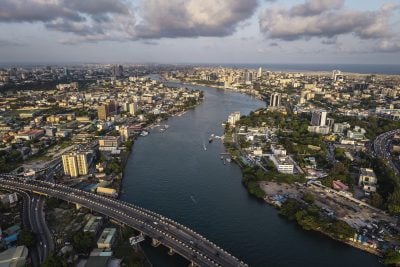Ghana’s Vice President Mahamudu Bawumia has announced plans for a “tax amnesty” should he win the election scheduled for December, in a move that supporters say will boost economic growth but critics fear is unaffordable.
Bawumia announced the plans as part of a wider package intended to simplify the country’s tax regime, committing to bringing forward what he called a “citizen and business-friendly flat tax regime.” He added that “to start the new tax system on a clean slate, my government will provide a tax amnesty… so that everyone will start afresh.”
Supporters of the move say it would offer much-needed relief for individuals and small businesses which have faced a challenging economic climate in recent years. Inflation is currently running at over 25%, with a sharply-depreciating Ghanaian cedi causing the price of imported goods to rise steeply. This has eaten into consumers’ disposable incomes and squeezed the margins for businesses.
Kingsley Kwaku Pinkrah, an Accra-based entrepreneur and CEO of development agency CEDI Ghana, tells African Business that the tax amnesty would lead to more capital being invested in the private sector. He says that it is therefore “one of the best policies the government could introduce to boost business investment and economic growth”.
Critics argue, however, that the government needs more revenue to fund its liabilities and a tax amnesty is unaffordable at this time. According to the World Bank, Ghana’s fiscal deficit in 2022 was significantly above target at 11.8%, with public debt surpassing 90% of GDP in the same year. As a result, by the end of December that year, Ghana was forced to suspend payments on most of its external debt, before agreeing debt restructuring in 2023.
Ghana is one of many African countries that receives a relatively low amount of tax relative to their GDP. In 2022, the United Kingdom had a tax-to-GDP ratio of 35.3% and the United States 27.7%. By contrast, the highest ratio that Ghana has achieved since the turn of the century was in 2021, when Accra saw a tax-to-GDP ratio of 14.1%. Even then, that was lower than the average of the 33 African countries surveyed by the Organisation for Economic Co-operation and Development (OECD).
Analysts have suggested that boosting government tax revenues, for example by improving the efficiency of tax collection, is a crucial step towards stronger economic growth. A recent paper argued that “expanding the tax net in Ghana is a fundamental step towards achieving sustainable economic growth and development.”
Pinkrah suggests that the tax amnesty will have a relatively limited impact on government revenues, pointing out that only 8.2% of Ghanaian workers pay tax in any case. He also argues that “the move could ultimately boost government revenues by encouraging increased business activity and investment.”
Nadia Takyiwaa-Mensah, a business owner in Accra, believes that a tax amnesty could be beneficial for government revenues depending on how exactly it works. She tells African Business that “if Bawumia’s government grants a tax amnesty in 2025 which leads to businesses paying outstanding taxes without penalty fees, the government could see a high volume of individuals and businesses making payments in the hope of starting afresh.”
However, she cautions against simply writing off all outstanding tax liabilities and says she “questions whether Ghana is in the position to grant such an amnesty.”
Want to continue reading? Subscribe today.
You've read all your free articles for this month! Subscribe now to enjoy full access to our content.
Digital Monthly
£8.00 / month
Receive full unlimited access to our articles, opinions, podcasts and more.
Digital Yearly
£70.00 / year
Our best value offer - save £26 and gain access to all of our digital content for an entire year!

 Sign in with Google
Sign in with Google 



